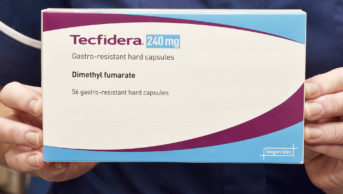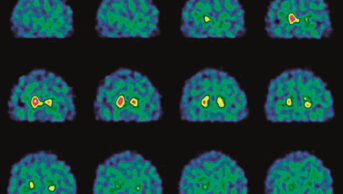
Wikimedia Commons/ Steven Finkbeiner
The first human trial of a drug for Huntington’s disease has shown it to be safe, well-tolerated and successful in lowering the level of huntingtin protein in the nervous system.
The phase I/IIa trial comprised 46 patients with early Huntington’s disease at nine study centres in the UK, Germany and Canada. Each patient received four doses of either the drug, IONIS-HTTRx, or placebo. As the trial progressed, the dose of the drug was increased several times.
The results showed for the first time that IONIS-HTTRx, which is given by injection into the spinal fluid to enable it to reach the brain, significantly lowered the level of the toxic mutant huntingtin protein, the protein known to cause the Huntington’s disease.
Sarah Tabrizi, director of the University College London (UCL) Huntington’s Disease Centre and IONIS-HTTRx global chief investigator said that the results were of ground-breaking importance for Huntington’s disease patients and families.
For the first time, a drug has lowered the level of the toxic disease-causing protein in the nervous system, and the drug was safe and well-tolerated.
“The key now is to move quickly to a larger trial to test whether the drug slows disease progression,” she added.
In June 2017, it was announced that all patients in the completed trial would be offered a place in an open-label extension to receive IONIS-HTTRx.
The results of the trial and plans for the ongoing IONIS-HTTRx programme will be presented at forthcoming scientific meetings and prepared for peer-reviewed publication.


